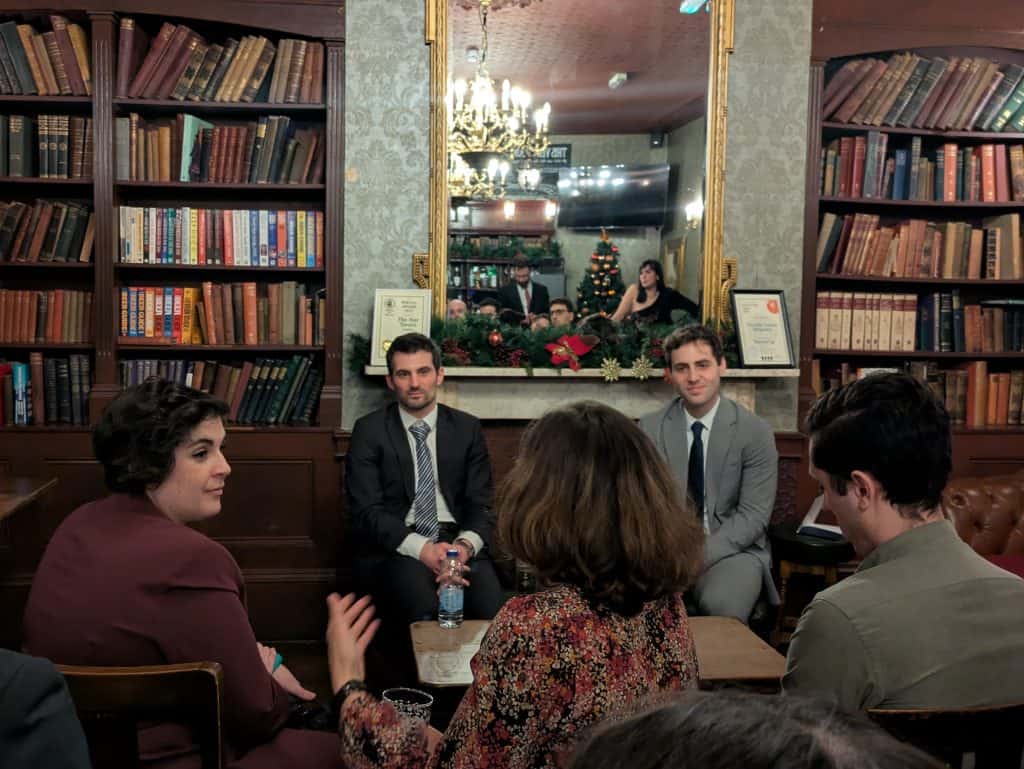Mobility has become a defining feature of scientific careers in the 21st century. If you’re reading this, you probably know what I mean. Science thrives on movement—of ideas, people, and knowledge. For researchers, mobility is more than a career requirement; it’s a leap into new cultures, languages, and ways of thinking that shape not just our work, but who we are. This transformative journey was the focus of a recent colloquium featuring Prof Emilio Martínez-Pañeda, winner of the 2024 SRUK/CERU Emerging Talent Award. His story, inspiring for so many of us, made me reflect on the promise and paradox of mobility in science: an exhilarating path of growth, often intertwined with personal challenges, but overshadowed by the deeper reality of systemic limitations.
A Double-Edged Sword
Listening to Prof Martínez-Pañeda’s reflections at the colloquium, I was struck by how he illuminated the dual nature of mobility in a researcher’s career. On one side, mobility offers unparalleled opportunities: connecting with mentors and peers across borders, gaining exposure to different scientific paradigms, and fostering the independence crucial for career development. These are advantages that many researchers, including Prof Martínez-Pañeda, have leveraged to grow professionally and personally.
Yet, his insights also revealed the challenges mobility imposes. Navigating new cultures and languages, adapting to unfamiliar academic environments, and balancing personal and professional demands are hurdles that require resilience and adaptability. He shared, for instance, how the indirect communication style in British academia can challenge those accustomed to more straightforward approaches, highlighting the subtle ways in which cultural differences can impact researchers.
However, these personal struggles are only one side of the equation. The systemic barriers researchers face—particularly when coming from underfunded institutions—represent the sharper edge of the sword. Prof Martínez-Pañeda’s observations laid bare the stark disparities in resources, infrastructure, and career opportunities between countries. While Spain produces highly skilled researchers, it often fails to retain them due to inadequate funding, limited infrastructure, and a lack of strategic vision for research and development.
The Resources Gap
The disparity between Spain and countries like the UK is striking. While Spanish universities produce high-quality researchers and provide a solid academic foundation, they often lack the means to retain their talent. Many researchers in Spain receive excellent training, only to face limited opportunities to advance their careers locally. Prof Martínez-Pañeda highlighted the stark differences in research funding, infrastructure, and strategic planning when comparing Spain to the UK.
“The UK system provides exceptional support for researchers”, he remarked, noting the concentrated hubs of resources, talent, and collaboration that are central to its success. This rigorous preparation is something Spanish institutions struggle to replicate, often resulting in a “leaky pipeline” where bright minds are trained in Spain but leave to pursue better opportunities abroad.
This systemic issue places a heavy burden on researchers, who must not only navigate the personal and professional challenges of mobility but also compensate for the structural deficiencies of their home institutions. Mobility, in this context, becomes less about expanding horizons and more about escaping limitations—a reality that demands attention.
A Need for Strategic Talent Retention
Prof Martínez-Pañeda’s observations raise critical questions about the future of science in Spain. While the country invests in developing researchers, it lacks a cohesive strategy to attract and retain talent. This gap is compounded by limited research funding and fewer opportunities for long-term career development.
What could Spain do differently? Prof Martínez-Pañeda suggests looking at models from other countries that have successfully built ecosystems to attract and keep talent. Strengthening partnerships between academia, industry, and government could create the necessary “hubs of stimuli” that drive innovation and offer competitive opportunities for researchers.
Lessons from Mobility
Despite these challenges, Prof Martínez-Pañeda remains optimistic about the transformative power of mobility. It opens doors to new ways of thinking, builds resilience, and fosters the kind of global collaboration needed to tackle pressing scientific challenges. However, as he reflected, “The possibility to move is a privilege—but it shouldn’t be the only option for researchers who want to thrive.”
Spain has the potential to be a leader in cultivating talent and innovation. By addressing the systemic issues that push researchers abroad, the country can create an environment where mobility becomes an enriching choice rather than a necessity.
For researchers, mobility is more than a career step; it’s a journey of discovery. For institutions and nations, it’s an opportunity to build stronger, more dynamic scientific communities. The challenge lies in balancing these perspectives and ensuring that mobility benefits both the individual and the system they belong to.

By Dr Roser López Cruz (@roser.languagecoach), Spanish Lecturer and Language Coach, Universidad de Córdoba / University of Westminster.



